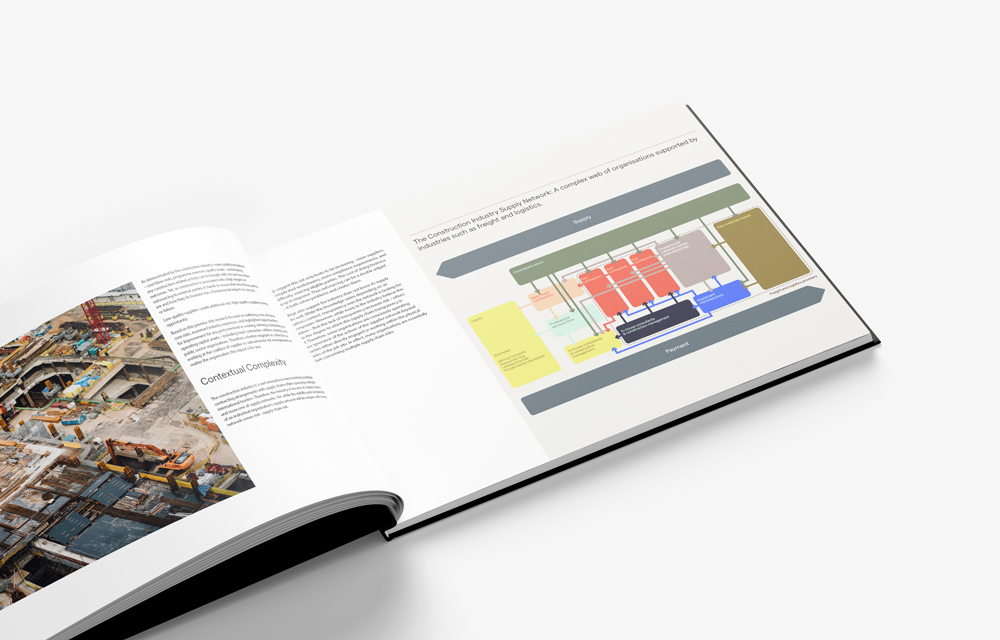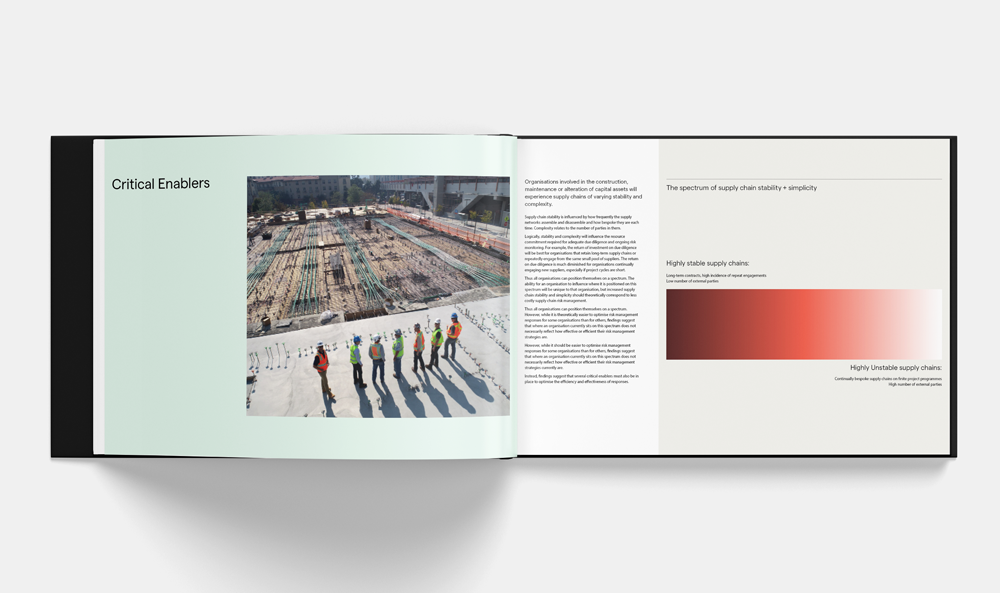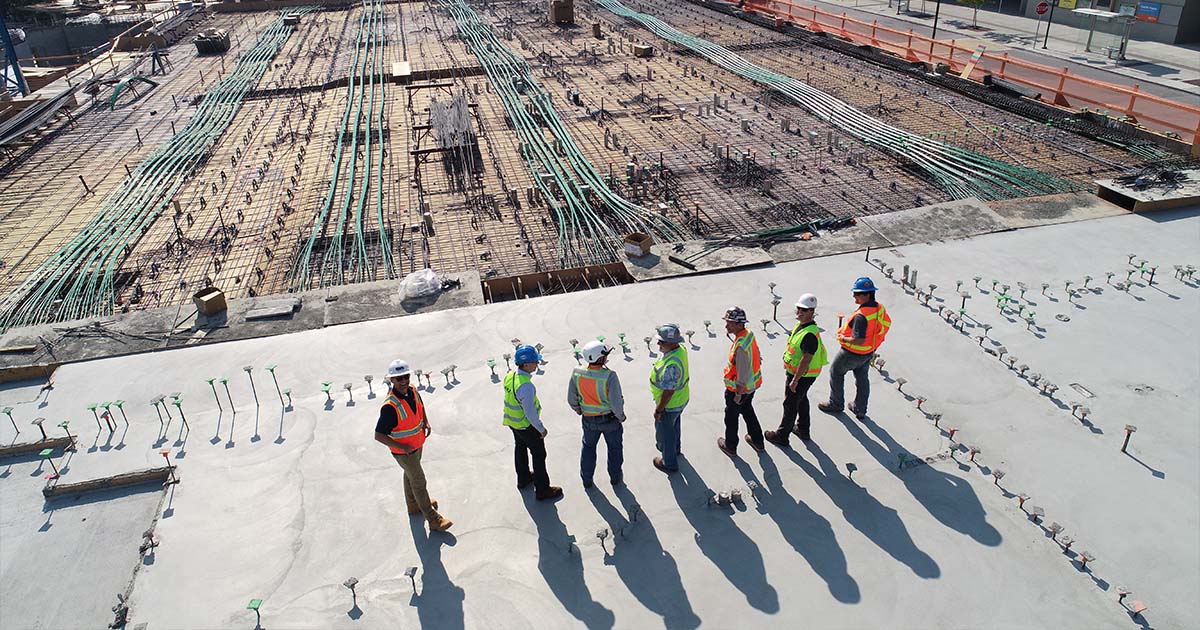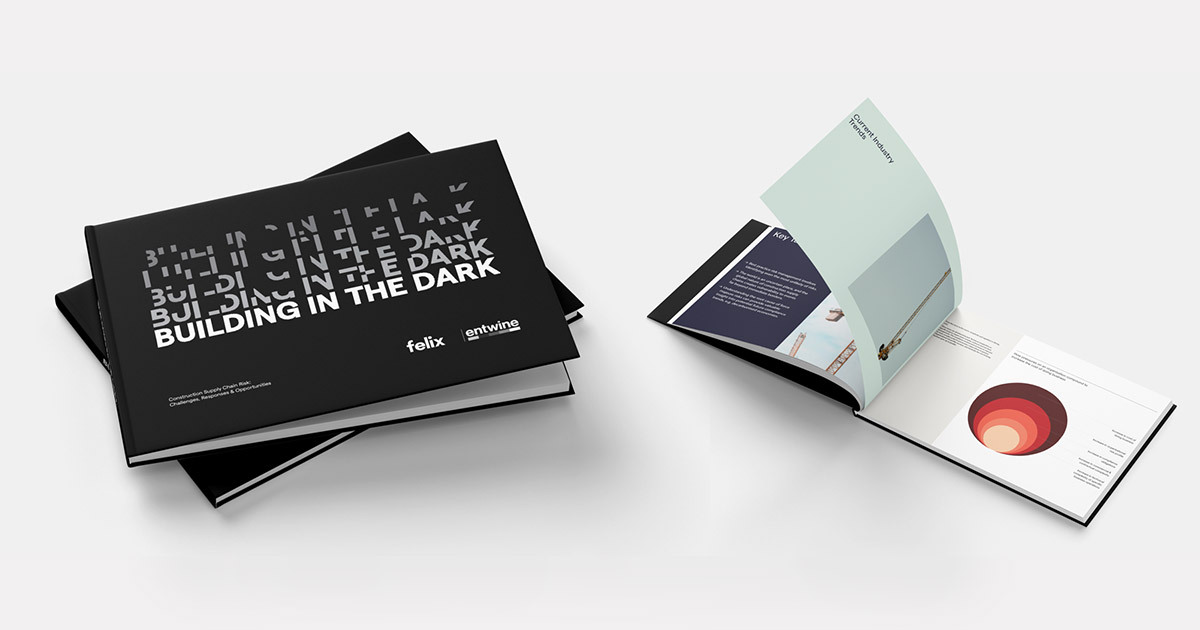Today marks the launch of the Building in the Dark report, which examines construction supply chain risk in Australia and New Zealand.
The report, developed in collaboration with industry consultancy entwine, finds that organisations in construction are operating blindly against an evolving backdrop of supply chain risks and changing business landscape, due to a staggering lack of supply chain transparency.
Mike Davis, CEO, Felix said, “We are seeing a major confluence of significant issues in construction today due to Australia’s historic infrastructure boom and more recently, the impact of the COVID-19 pandemic. The consequent skill shortages, greater reliance on outsourcing and sharply increasing cost pressures are just some of the challenges dialling up the overall risk of adverse outcomes for projects. Alarmingly, many of these risks are not immediately visible and remain unaddressed by organisational leadership.”
Leah Singer, author of the report and director of entwine, said, “The report is a rallying call to action for the industry to play their part in this increasingly complex supply network environment. Organisations need to improve supply chain risk management towards better industry outcomes as well as broader social and environmental benefits.”

The report highlights significant issues that contribute to risk in projects, including lack of supplier due diligence, lack of effectiveness in ongoing supply chain risk management, communication and information sharing within organisations and externally with the wider supply network.
“Broadly, the industry responses indicate that organisations are primarily focused on protecting the here and now of project delivery. Concern about risk outside of the traditional paradigm is significantly lower, including the risk of modern slavery, fraud, corruption, or the black economy,” explained Singer.
Key findings from the report include:
- Construction supply chain risk on the rise but remains prioritised against the traditional project management metrics of time, cost, and quality – The industry is dealing with greater complexity due to more suppliers, complicated workstreams, compliance requirements and difficulty sourcing eligible parties. While organisations recognise the importance of regulatory compliance, they are less concerned about ensuring that quality obligations can be met in the future.
- Organisations lack transparency over the supply chain network - 79% believed their third parties were not always fully aware of or understood the risks they are responsible for managing under their contracts. Additionally, 56% believed their organisation had unknowingly engaged an entity red-flagged by another area of the organisation. Only 40% of participants believed their organisations were never subject to optimism bias in the reporting of projects or business operations involving third parties.
- Risk management can become risk transfer to parties not fully equipped for this responsibility – Responses point to poor contract literacy, which results in potentially low levels of transparency and low levels of monitoring of parties thought to have insufficient competencies around risk management. A lack of budget and time are cited as barriers to upskill suppliers and to audit ongoing compliance for contract requirements not related to output performance.
- Severe economic failures and disintegration imminent if industry fragmentation persists - Communication silos within projects, such as poor information-sharing on both suppliers and supply chain risk, can lead to heavy losses and detrimental outcomes for the current projects across the country and ultimately, the breakdown of the entire sector.
The report strongly recommends effective and efficient communication and information sharing throughout the life cycle of projects. Enabling information flow in all directions will help establish the quality of both the supplier and its extended supply chains, as well as to identify and manage ongoing risks associated with the network.

Commenting on the report findings, Davis said, “Digital is the biggest source of opportunity to enable greater transparency and accountability in the network, maximise efficiencies and enhance the quality and safety of projects delivered in Australia.”
However, while many organisations recognise the value of going digital, over half (56%) of the research participants believed their organisations were not investing enough in digital tools. The lag in adoption prompted Felix and Entwine’s joint submission to the recent Parliamentary inquiry into procurement practices, outlining strong recommendations for digitisation to promote efficiency, meet capacity constraints while modernising procurement.
Davis added, “Construction is at a critical juncture, with the number and complexity of large projects colliding with rising costs, supply chain constraints and increasing competition. The landscape has shifted dramatically in recent years and the risks lying in construction supply chains are multifaceted and complex. Leadership in construction organisations need to ensure they have adequate systems to drive transparency, accountability and sustainability throughout their supply chains as we embark on an unprecedented level of building and infrastructure.
Effective risk management is a whole-of-industry issue, and it requires a demonstrable commitment from all parties, including industry leaders, clients and government.”
To download a copy of the Building in the Dark report, please click below.
Watch our on-demand webinar where Mike Davis and Leah Singer discuss the implications of the report findings for the industry. To access the recording, please click below.
About the Building in the Dark Report:
The Building in the Dark report is based on a survey of over 150 individuals across both Australia and New Zealand, a selection of one-on-one participant interviews, and extensive desktop research of existing reports and industry commentary.
About Felix:
Felix operates a cloud-based enterprise Software as a Service (SaaS) procurement management platform and vendor marketplace. Felix connects contractors and third-party vendors by digitising, automating, and streamlining a range of critical procurement-related business processes – reducing supply chain risk and improving transparency and governance.
About entwine:
entwine is a boutique industry consultancy dedicated to driving meaningful, evidence-based change within the construction industry. Services include the design and facilitation of strategic and operational improvements for any party within the sector, with expertise spanning procurement, design, and complex, high-risk work streams such as offsite.
Related Articles

Top 10 reasons for a centralised vendor database
While some organisations still rely on multiple decentralised databases or spreadsheets to store vendor data, a centralised vendor database offers numerous advantages. This article explores the top 10 reasons why a centralised vendor database is more effective than having information scattered across multiple email inboxes and spreadsheets.

What is a contract repository and why having one matters
Commercial contracts are legally binding agreements between two or more entities that set the foundational structure of a business relationship. They are a document of importance, as a contract defines the terms, obligations, and rights of the parties involved.

Mandatory climate reporting pillars: Governance and Strategy
Previously, we’ve discussed the RSM study that assessed Australian companies' readiness for mandatory climate reporting.
In this blog post let’s delve into the first two of four fundamental pillars of climate reporting: Governance and Strategy.
Let's stay in touch
Get the monthly dose of supply chain, procurement and technology insights with the Felix newsletter.





